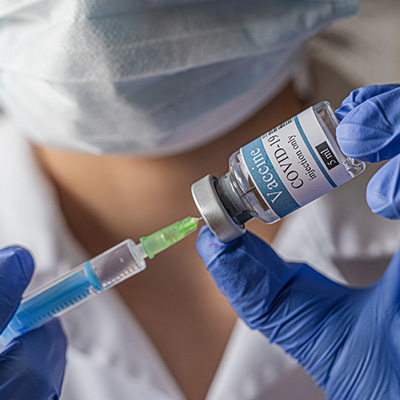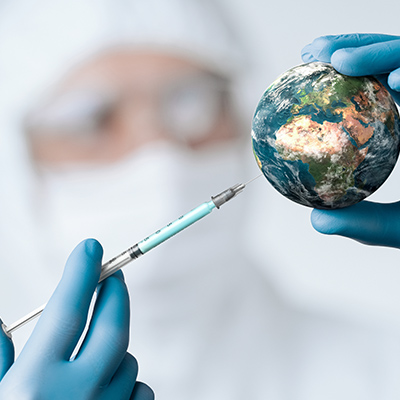November 20, 2020 -- Dr. Anthony Fauci, director of the National Institute of Allergy and Infectious Diseases (NIAID) discussed the perils and opportunities of public trust during the COVID-19 pandemic, especially pertaining to the development of vaccines. The conversation took place on November 19 and was part of the Hastings Center's series Securing Health in a Troubled Time.
It is a difficult time to communicate important health messages amid such polarization, politicization, divisiveness within communities. But as Dr. Fauci explained, "Infectious diseases do not discriminate between one's ideology."
"We all have to be in this together," he urged. And in an effort to build public trust in vaccines, he provided clarity on certain facts surrounding accelerated COVID-19 vaccine development.
- Speed of development. The increased speed at which the current COVID-19 vaccine candidates are being developed is a reflection of scientific advancement. The advanced technologies that are at our disposal in the 21st century have enabled us to knock years off the discovery process. Moreover, due to the nature of the nucleic acid-based vaccines, development can proceed rapidly without the need for complex scale-up of processes.
- Manufacturing at risk. The U.S. government has committed billions of dollars to manufacture vaccine doses before the vaccines have been properly approved. According to Fauci, the government believed that this was a risk worth taking in order to deliver a vaccine to the public in a timely manner.
- Efficacious versus effective. Dr. Fauci explained that efficacy is the result of a trial under appropriately controlled conditions, whereas effectiveness is how a vaccine affects a target population.
- Vaccines will prevent you from getting COVID-19 disease. Clinical trial data, aimed at evaluating the potential to the prevent clinically recognizable infection and severe disease, points to a degree of protection against disease in individuals. Fauci said that we still do not know if vaccinated individuals get infected and mulled over if the viral load in those individuals could become so low (because the immune response dampened the amount of virus) that they would be unable to spread the virus to others.
- Clarity in messaging. Dr. Fauci urged that when referencing vaccines, a message that sticks to the facts is best – for instance, "the vaccine will prevent you from getting COVID-19 disease." He said to use caution in regard to spread of the disease, because we do not know if the vaccines will provide complete protection from infection. So long as there is a chance infection may occur -- and transmission to others -- public health measures must not be abandoned.
So, the open question that remains is how well the vaccines will prevent infection and what effect they will have on transmission within communities. Dr. Fauci noted that people must get a vaccine for it to be effective, and to achieve this the public must have trust in and rely on the science.
Copyright © 2020 scienceboard.net









